Culture and traditions
Of all the civilizations on our planet, Chinese is the most ancient. The people and their culture are over 5000 years old. Perhaps everything produced by humanity before the 19th century has some relation to China. The first gunpowder, throwing siege engines, silk, paper, compass, printing, even vodka (based on hawthorn) appeared here. Archaeologists have discovered a strong drink in layers dating back 9,000 years! Chinese culture is steeped in the teachings of Taoism and Confucianism, Buddhism and Lamaism. The East significantly influences the way the Chinese live. Here is a special attitude towards traditional values:
- cult of respect for elders;
- reverent attitude towards marriage;
- patriarchal parenting;
- inequality between men and women.
This list can be continued for a long time. It is important to understand that life in the Middle Kingdom will require the acceptance of all traditional norms. Therefore, the first months will be difficult for an immigrant from Europe here.
Chinese life expectancy
In some mountainous areas of Tibet, it is rumored that there are monks who have been in a trance and have not died for more than 200-300 years. However, overall, the most populous country in the world is only 53rd on the list in terms of life expectancy. According to information provided by WHO, the average Chinese person dies at 76.1 years of age.
Official data on how many people live in China were published after the 2010 census. Then the figure was 1.3 billion people. The next census is scheduled for 2021. However, already now, according to UN demographic services, 1.4 billion people live in the Middle Kingdom.
Chinese
Officially, what 92% of Chinese residents (ethnic Han) speak is called a single dialect. Nevertheless, linguists recognize that modern Chinese (Sino-Tibetan group) consists of several dozen dialects. Official writing is an artificial simplification. But hieroglyphs are understandable in all regions and are easier to remember by foreigners. Let's look at how ordinary people live in China. Below is an analysis of the main set of indicators of the population's well-being.
Standard of living in China compared to Russia
Until 2015, there was a tendency for Russian citizens to move to the Celestial Empire for temporary and permanent residence. Now activity has decreased. The reasons why Russians go to live in China are very different . For some immigrants, the exotic component is interesting. Others prefer the economic conditions in China. Still others are interested in the low cost of housing and its maintenance. The fourth travel to organize and develop a business. It should be noted that not everyone successfully finds their niche.
Table: comparison of life indicators of countries in 2021
| Index | China | Russia |
| Average salary, $ (periphery / capital) | 750 – 1400 | 500 – 1000 |
| Daily minimum consumer basket, $ | 15 | 26 |
| Average amount of old-age pension, $ | 185 | 185 |
| Price of residential real estate, sq. m. $ (Beijing, Moscow) | 5300 | 2330 |
| Price of residential real estate in the periphery, sq. m. $ | 450–500 | 800–850 |
| Rental price for 1 room. apartments on the periphery, $ per month | 350 | 150 |
Food prices in China vary greatly from area to area, from city to city . For some regions of the country, the cost of individual products/goods may double.
Cost table for some products/goods
| Position | Chengdu | Nanking | Harbin | Beijing | Russia (average) |
| Drinking water, 1.5 l., $ | 0,44 | 0,85 | 0,4 | 0,65 | 0,39 |
| Chicken breasts, 1 kg, $ | 3,87 | 3,46 | 6,27 | 4,53 | 2,45 |
| Bakery products, 1 kg, $ | 1,03 | 1,36 | 2,37 | 1,78 | 0,32 |
| A pack of cigarettes | 2,32 | 2,36 | 1,3 | 3,15 | 1,05 |
| Lunch in a cafe for one person | 2,34 | 3,0 | 2,85 | 3,93 | 4,38 |
| Travel by public transport | 0,31 | 0,35 | 0,3 | 0,45 | 0,2 |
| Gasoline 1 liter, $ | 1,04 | 1,12 | 1,2 | 1,43 | 0,7 |
...If you shop at markets instead of supermarkets and outlets, everything will be much cheaper. But here you need two skills - the ability to choose and evaluate goods (because there will be a lot of bullshit) and the ability to bargain...
alexey_kan
https://pora-valit.livejournal.com/752415.html?thread=61797663#t61797663
In theory, permanent residence in China is possible. Practically - almost impossible. A foreigner may have a chance for permanent residence in China (PR) only under the following conditions:
- investments in the economy (at least 500 thousand US dollars),
- work as a top manager of a large national company for 5 years,
- teaching activity at the professorial level at a Chinese university for at least 5 years,
- having a rare, in-demand profession (for example, nuclear chemist) or a high scientific degree,
- marriage with a Chinese citizen and living together with him for 5 years.
Thus, usually only immigrants who are well educated, very talented, and enterprising are lucky. And only potential brides of Chinese grooms or immigrants who managed to do something extremely useful for China can think about Chinese citizenship.
...in China there is no such thing as a permanent residence permit for foreigners, not to mention the fact that it is impossible to obtain citizenship except through marriage/special services to China...
napishinapishi
https://pora-valit.livejournal.com/752415.html?thread=61783583#t61783583
Features of upbringing and education
If you compare Chinese and Russian education solely from a technical point of view, it is difficult to notice any peculiarities. For example, the Chinese also prefer to raise their children in kindergartens. They also have to pay at least 2,000 rubles for the service. per month and choose between public or private institutions. There are even so-called elite kindergartens “for our own people.” Here the main role is played not so much by money as by acquaintances. In Russia, this practice is well known to many parents.
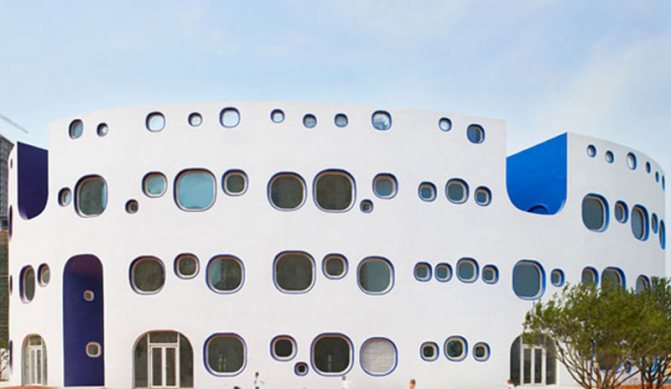
A kindergarten of unusual architecture was built in the Chinese city of Tianjin
Public schooling in China is free, including for children of immigrants. Compulsory study lasts 9 years. Education is usually conducted in Chinese, but many colleges and vocational schools provide education in English. There are educational institutions where they teach in Russian.
Many educational institutions include in their class schedule compulsory physical exercises, which are carried out simultaneously with all school students on an open parade ground. Usually the event is organized before the start of classes every day and regardless of weather conditions.
Another lesson about collectivism is taught to students at the end of the school day. Students follow an organized march to the main gate of the school, and only outside of it do children and teenagers have personal freedom. Some schools use "quiet hour". Students in the classroom are placed directly on their desks, and in this position they sleep for some time - they gain strength.
In recent years, the higher education sector has been actively developing. The number of higher educational institutions in the country has exceeded two thousand. In total, more than 2 million students study at universities in China. Interestingly, almost 1 million 200 of them prefer IT technology faculties. In this direction, China is in first place in the list of training highly qualified specialists.
the cost of living
In general, prices in China correspond in level to those in Russian provincial cities. Food is extremely cheap here and public transport fares are moderate. It is quite difficult to find rental housing. In general, the cost of living in China is quite consistent with the income indicators of the population. A priori, an employed city dweller cannot be poor. In rural areas the situation is worse.
Product prices
The cost of living in China is not officially regulated. However, the actual minimum wage is 2000 yuan per month. What does this money mean? Let's start with the grocery basket.
| Name (1 kg) | Yuan | $ |
| Rice | 2.5 | 0.4 |
| Apples | 4 | 0.6 |
| Potato | 3 | 0.45 |
| Tomatoes | 2 | 0.3 |
| Carrot | 1.3 | 0.19 |
| Chicken | 12 | 1.8 |
| Ground meat | 16 | 2.35 |
| Fish | 8 | 1.17 |
| Eggs (sold by weight) | 10 | 1.5 |
| Pasta | 6 | 0.9 |
The exchange rate of the yuan against the ruble is 1:10. Prices for many products are cheaper than the Russian average.
Real estate
The country with the world's largest population is struggling with a housing shortage. In urban areas, almost everywhere the minimum cost per square meter has exceeded the $1,000 level. For the same price you can rent a two-room apartment for a month in a middle area of a large metropolis. The authorities set restrictions on the purchase of housing by foreigners:
- you must live in China for more than a year;
- It is prohibited to buy more than 1 apartment;
- you cannot purchase real estate in poor neighborhoods;
- There is a ban on commercial use of housing by foreigners.
These restrictions must be taken into account when planning to move to China.
Standard of living in China
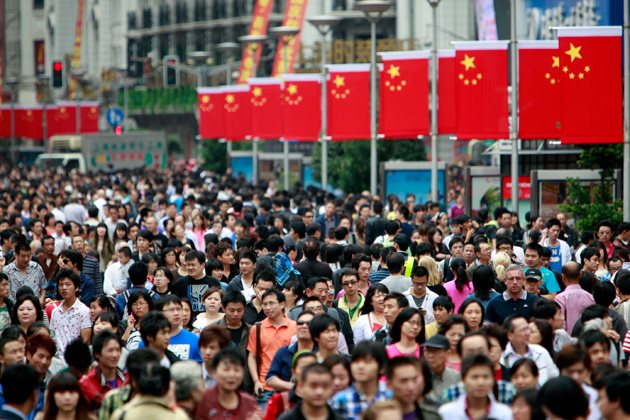
Research by foreign monitoring commissions shows that the standard of living in the Middle Kingdom is improving every year. Rapid growth in productivity, continuous modernization of the economy, influx of foreign investment - these factors only have a positive impact on the well-being of Chinese residents.
Aspects of Chinese policy aimed at improving medical care and education also play an important role in indicators of living standards. Indigenous residents use all social services free of charge. Attention is paid to the construction of affordable housing and the development of transport infrastructure.
Although Chinese wages vary greatly (depending on regions), over the past few years there has been a widespread increase. At the same time, the cost of food, household appliances, clothing and personal goods is quite reasonable, and significantly lower than in Japan and America.
In China, local residents have fairly low interest rates on loans. You can take out a mortgage at 5% per annum, a consumer loan at 6.5-7%.
All these factors have a beneficial effect on the average standard of living.
Is it expensive to live in China?
The largest cities, which are major industrial, financial and commercial centers, are located in the eastern part of the country. Residents of Beijing, Shanghai, and Hong Kong earn fairly high salaries, ranging from 10,500 to 25,000 yuan per month, but the cost of renting apartments here is prohibitively high.
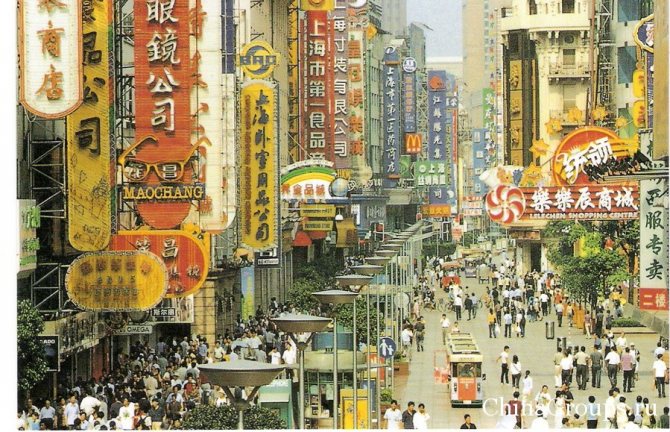
In remote Chinese provinces, the monthly income of the population is 3500-4000 yuan. The average salary in China is 7,200 yuan.
For residents of the southern and northern provinces, 5,000 yuan is enough for a comfortable existence for a family of 3 people, but the middle class in a metropolis needs an amount 2.5-3 times more to live.
Where is the best place to live in China?
The choice of place of residence in China is based on the main goal pursued by emigrants. If this is work or study, then there is no better place than the administrative centers of the eastern part of China.
Electronics Development Center - Shenzhen is suitable for the primary residence of software developers, engineers. Great prospects open up for them to find a highly paid job, since companies always need high-level specialists.
People accustomed to a measured pace of life can settle in unusually calm cities for China - Suzhou and Nanjing.
Those dreaming of an active pace of life surrounded by an incredible number of skyscrapers will find the Asian financial center Shanghai suitable for living. The beautiful Chinese city offers a million opportunities to realize the talents of foreigners. But when choosing Shanghai, you should take into account that not everyone can withstand the crazy pace of this city.
One of the most expensive large cities is Beijing. Both native Chinese and foreigners are equally comfortable here. The Chinese capital has the largest number of emigrants from all over the world. The main offices and representative offices of leading Chinese and foreign companies are located here, so there is an opportunity to find an excellent place to work, implying further advancement in your career.
There are 4 most promising places to live in the Middle Kingdom: Hong Kong, Shanghai, Tianjin and Beijing. The highest standard of living is observed here.
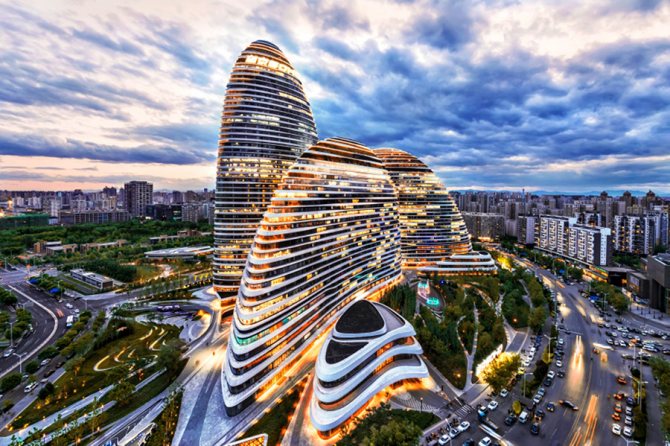
Beijing
Features of employment
A huge population creates an imbalance. Due to high competition and the high cost of higher education, many Chinese strive to acquire a good working specialty and start earning money as quickly as possible. Therefore, China is experiencing a certain shortage of qualified personnel:
- in the field of heavy industry;
- in the electronics industry;
- in science;
- in the space sector;
- in the chemical industry.
Europeans are valued in the service sector. Western appearance is now in fashion in China due to the deep integration of the Celestial Empire into the global space. Despite the restrictive measures, mass Western culture, fashionable because of its novelty, still penetrates into China. Immigrants from Russia and Europe can easily find work as a dancer, actor, translator, and so on. For such people, the standard of living in China will be immeasurably higher than for their colleagues of Asian appearance.
Salary rates
The income level of the population depends on whether they live in cities or rural areas. The gap between rich and poor is quite large (10–15 times).
- The minimum salary for a city dweller starts at 2000 yuan (20 thousand rubles).
- The average salary in China is about 7,000 yuan.
- Maximum salaries reach 30 thousand ¥.
These amounts apply to hired workers in cities. Farm laborers from villages receive much less. and very pittance salaries for illegal labor migrants arriving from other Asian countries or from the suburbs.
Tax deductions
The PRC has a progressive scale. The minimum rate is 5%. The maximum level reaches 45%. Those earning below 4,000 yuan do not pay personal income tax. Additional fees include:
- VAT (from 3 to 17%);
- tax on the purchase of vehicles 10%;
- for real estate transactions 1.2%;
- pension fee 8%;
- health insurance 2%;
- fee for the unemployed 0.2%.
This list is not complete. As in any developed state, the number of taxes (general, regional, local) includes dozens of types.
What is their average income?
According to official data, a middle-class household in China earns between 25,000 yuan ($3,640) and 250,000 yuan ($36,400) per year.
Just recently, the National Bureau of Statistics published an official definition for the first time, stipulating that people earning a monthly income of between 2,000 yuan ($295) and 5,000 yuan ($740) constitute a “middle income” in China. This is significantly lower than the OECD average.
Read other CHINA NEWS Apple iPhone sales decline in May
In fact, a 2015 report from investment banking firm UBS and Pricewaterhouse Coopers pegged the size of China's middle class at only about 109 million people—setting a higher income threshold at between $50,000 and $500,000.
Official Chinese calculations would place such wealthy Chinese in the "high-income" category. The National Bureau of Statistics said anyone earning more than 10,000 yuan ($1,480) a month would qualify as a high-income earner.
Again, for ease of comparison, we will look at how middle class households are defined in the US and South Korea. The US defines middle class households as those earning two-thirds to double the National Median Income, in South Korea it is between 50 and 150 percent.

Salary in the USA
A single person with a median income in the United States earns between $26,000 and $78,000 per year (as of 2021), while a middle-income household earns between $45,000 and $135,000, according to the Pew Research Center.
In South Korea, the average monthly income of a four-person household in 2021 was 4.39 million won ($3,928). This would mean that the average middle-class household of four would earn a monthly income of between $1,964 and $5,892. This is still much higher than in China.
Social security of citizens
Overall, this is one of China's Achilles heels. The social policy of the republic switched to capitalist lines only in the mid-1990s. Before this, the principles of the previous planned economy were in effect, which greatly hampered the development of the state.
Pension amount
The working age threshold in China is 50 years for women (55 for former officials) and 60 for men. The benefit amount is 900 yuan. This money is not enough to live on. However, the pension is not the only income. Local legislation obliges children (grandchildren) to support their elderly relatives.
A litmus test for how retirees live in China is the number of tourist groups in any major Russian museum. So the lack of large subsidies does not in the least prevent the elderly people of China from living for their own pleasure.
Payment of benefits and allowances
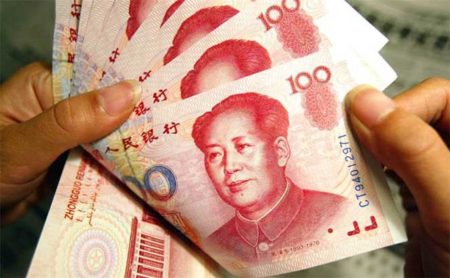
Supplements to pensions can be paid by private companies. Certain benefits are provided for special categories of the population:
- disabled people;
- unemployed;
- professional military personnel;
- employed in hazardous industries, and so on.
The benefits system in China is not as extensive as in Europe or the USA. The republic's social policy lags behind world standards.
Russians in China
In recent years, the number of visitors from Russia to China has increased significantly and, according to statistics, in 2021 reached 50,000 people. Russians come for temporary or permanent work as artists, translators, teachers of Russian or English. Many of them work for international companies or do business with Chinese partners.
In addition, descendants of Russian settlers who found themselves in immigration after the collapse of the Russian Empire live in Xinjiang, Inner Mongolia and Heilongjiang Province. Most of them are of mixed origin, but they maintain the Orthodox faith, Russian traditions and language.
Russian pensioners in China
In recent decades, China has been popular among Russian pensioners. A pension of 8,000-10,000 rubles a month, on which one can only live very modestly in Russia (especially in Siberia and the Far East), is quite enough to ensure a comfortable life for pensioners in China.
Utilities and products in this country are significantly cheaper than in Russia, so many elderly people sell or rent out their homes in Russia and go to China. They are attracted by the warm climate, lower daily expenses and Chinese traditional medicine, which is effective in treating chronic and age-related diseases.
Many Russian pensioners settled in Harbin and cities located near the Russian-Chinese border - Hunchun and Heihe.
There are Chinese traditional medicine clinics aimed at elderly foreigners, and shops with Russian-language service.
Education system
This is not to say that Chinese diplomas are not in demand in the EU and the USA. It’s just that the world community has not yet gotten used to the fact that the quality of education in China has reached the highest level in just a couple of decades.
- In state kindergartens, from an early age, an emphasis is placed on labor education and a sense of collectivism. Children's creative skills are given attention only in private institutions working under European programs.
- School education includes 12 grades: 6 elementary, 3 middle and 3 high. The lesson lasts 40 minutes. However, only in primary school there are 6-7 of them per day. Next, children are taught 8–9 lessons each with a mandatory lunch break and a “quiet hour” in the middle of the day. In China, physical education occurs every day.
- Higher education in China is a privilege. The competition for applicants is several hundred per place. Therefore, only the best study at universities. Modern universities in the country are included in all international rankings. The best universities are distinguished by their infrastructure, comprehensive support, and excellent scientific base.
Chinese higher education has long switched to the Bologna system (bachelor's and master's degrees). Many students continue their studies and find employment in the USA and Europe. The lifestyle of teenagers in China is characterized by a sense of duty and decency. Senior schoolchildren and students are very passionate about their studies due to high competition for places in universities and good jobs.
Features of life in China
The Chinese mentality is a mixture of religious beliefs and patriotic education.
The local population strictly adheres to ancient traditions and strives for collectivism. This mood is very different from European values, aimed at individualism and self-expression.
The Chinese are quite superstitious, so when building houses and arranging apartments, they pay great attention to the correct arrangement of things, adhering to the teachings of Feng Shui. A large number of Chinese superstitions are related to money.
Residents of the Celestial Empire pay special attention to food. By including the topic of food in your conversation, you can always find common ground with the locals. National dishes and the tea ceremony are an integral part of Chinese life.
Chinese residents spend the main period of their life at work, so they value every free minute and know how to organize their leisure time. The Chinese are used to having a good rest. They combine even simple walks in the park with sports training or breathing exercises.
Ordinary life in China is very noisy and moves at a fast pace. The feeling that the vast territory of the Celestial Empire is frozen occurs only once a year during the Chinese New Year. Official holidays are declared for the entire celebration period, and the everyday bustle is reduced.
Medical level
Traditionally, Chinese healers sought to treat not the disease, but the whole person. In this country, it is believed that pathology occurs as a result of energy imbalance throughout the body. Therefore, therapeutic techniques are not aimed at a specific focus of the disease, but at the main areas of the body responsible for the proper circulation of energy. Hence such exotic treatments as acupuncture, massage, aromatherapy and meditation. Today, modern pharmaceuticals, 21st century surgery, and powerful medical infrastructure (clinics, hospitals) have been added to traditional methods. This makes treatment in China even more effective.
Pros of living in China
If you're considering moving to China, you'll probably be interested in knowing what the pitfalls of life in this country are. All the advantages that can be obtained after emigrating to China have long been known:
- The main advantage of living in China for foreigners is that they will be welcomed with open arms in language schools or other positions, provided they have certain knowledge. Since China has been an isolated country for quite a long time, people of European appearance are always welcome here.
- The Chinese are very good-natured and hospitable people. Despite the difference in mentality, Russians in China feel very comfortable, since the inhabitants of this country are welcoming and friendly.
- The high level of wages for foreigners compensates for the poor environment and overpopulation of the country. True, to obtain a worthy profession, you still need experience and knowledge, it is better if it is in the field of science or programming - such specialists are most valued in China.
- The rich thousand-year-old culture will accompany you throughout the country. In every major city you can find and visit monuments and temples whose history goes back several hundred years.
- The large area of the country, although not comparable to Russia, is still conducive to travel. China's transportation system is very well developed, so getting from one point to another is not difficult. And the variety of climatic zones and architectural and cultural monuments will give the trip its charm.
- Economy of China. Where does this country rank in terms of living standards compared to others? Recently, China's annual GDP has surpassed the economies of all countries in the world, even the United States. And in the future, judging by the forecasts of experts, this gap will only increase. Therefore, China is a very promising country for life.
Transport in China
Today, China is the world leader in infrastructure development in this area. The main growth began in the late 1980s. But until the middle of the twentieth century. There were practically no ordinary roads in the country.
Public transport
The growth rate of megacities required the development of the metro. Today, underground transport is represented in more than 30 cities. China ranks first in terms of line length. Public transport costs an average of 2 yuan per trip. This is cheaper than in many Russian cities.
Taxi
The call and boarding fee is approximately 10 yuan. The average cost per kilometer is ¥1.9. These prices correspond to those in many Russian regional centers.
Rent a Car
This service is more difficult to use than in other countries. Car rental is provided only for trips within the administrative region. Car prices fluctuate due to the demand for the service. You should book transport in advance, because often there are not enough cars for everyone who wants to rent a vehicle.
So how does the Chinese middle class spend their money?
Education, health care, elder care, rising debt and housing costs dominate the spending of hundreds of millions of China's urban white-collar professionals and private business owners.
And, while their wealth has risen with China's rise, so have the cost of living in the cities. For example, most young Chinese families still depend on their parents for financial support when buying their first car, let alone a house.
Read other CHINA NEWS World IoT Expo 2020 opens in Wuxi
Young middle-class families cut costs by buying goods in bulk and during sales, and rarely eat out or travel abroad. Instead, priority is given to paying school fees and covering high tutoring costs.
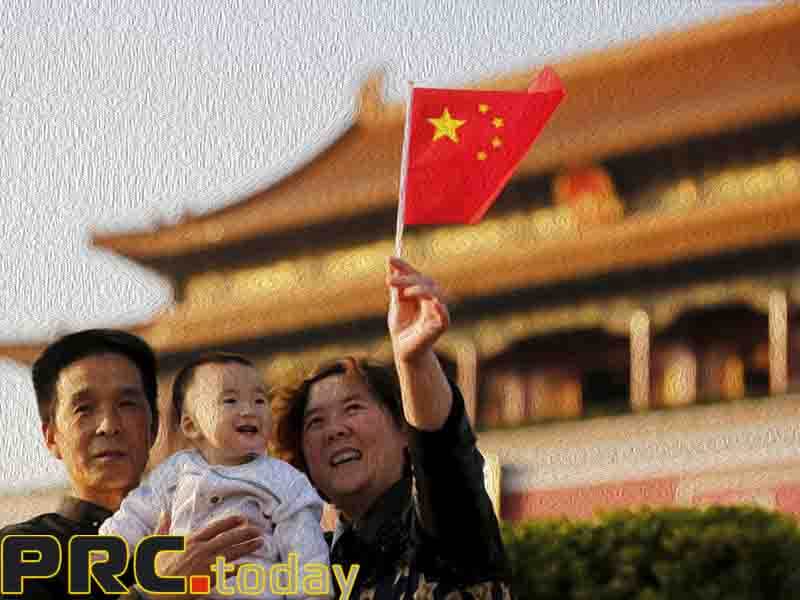
Young middle class families
Higher-income households are also investing in extracurricular activities for their children, such as music or dance lessons, to give them a head start as they get older and to explore study abroad options.
This comes as Chinese parents invest in education as a critical means of boosting their economic career ladder - a much more difficult proposition for the millions who move from more distant regions of second- and first-tier cities.
The stakes can be incredibly high—China's college entrance exams show more than 10 million students vying for a place at one of 150 first-tier universities.
In addition, complex household registration rules mean that those living in China's vast urban agglomerations often must support elderly parents and family members in their ancestral or rural homes.
National diasporas
Over 90% of the population belongs to the titular ethnic group – Han. The second largest nation, the Zhuang, makes up 1%. Europeans concentrate in former colonial zones:
- Hong Kong (English);
- Macau (Portuguese);
- Harbin (Russians), etc.
There are Muslim settlements on the border with India. The best cities in China to live in definitely have European neighborhoods. Office workers of Western companies move here.
Peculiarities of life of Russians in China
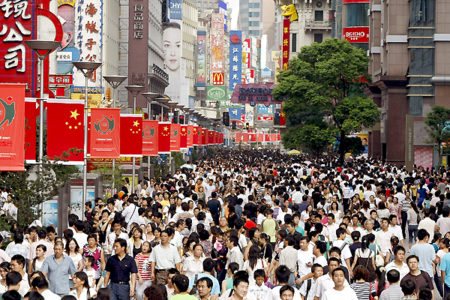
The main points of relationship between our compatriots and the inhabitants of the Middle Kingdom in the first half of the twentieth century. there were the Chinese Eastern Railway and Harbin. After white emigrants expelled from the Far East settled in this city, the Russian-speaking population of China exceeded 200 thousand people.
Against the background of another surge of friendship during the defeat of the Japanese Kwantung Army and the provision of fraternal assistance to Mao Zedong, the number of Russian speakers grew, but under Khrushchev a dark streak came in the relationship. In the 21st century There are no more than 15,000 officially employed Russians in China. The life of Russians in China is complicated by the following:
- the language barrier;
- difficult adaptation to local culture;
- crowded population and high competition in education and the labor market;
- a certain alienation of locals from Europeans.
The best life for Russians is along the border between the Russian Federation and the People's Republic of China. On weekends, people go to China to shop.
Migrants from Ukraine
The political and economic difficulties that Kyiv is experiencing have led to an outflow of citizens to work. In this regard, the Chinese direction turned out to be quite popular. Show business workers (European appearance is in fashion), scientists and qualified specialists in the field of heavy industry come here.
For Belarusians
Citizens of this republic enjoy special respect in China. There is a Belarusian community here. Enterprises are operating (branches of Gomselmash and the MTZ tractor plant). The TV channel broadcasts in Russian and the radio station broadcasts in Belarusian. A visa-free regime has been established for citizens of the republic when making tourist trips.
How much does it cost to rent an apartment in China and pay for utilities?
There are several important nuances here. As you understand, housing prices in China vary greatly, depending on the city, region and the immediate comfort of the apartment itself. If we talk about Chengdu, one of the largest cities in China, here foreigners, as a rule, rent studio apartments or live in groups of two or three in more spacious apartments.
The studio apartment is one large room, with a built-in kitchen, a large bed and a shower room. Most often, such apartments do not have a balcony. Nowadays, everywhere in China you can see high-rise buildings with 20-40 floors under construction or already completed. As a rule, several such houses are combined into one complex, which is surrounded by a fence, and there is a barrier and security at the entrance. Inside the complex you can often find fountains, small artificial ponds and green spaces. There are a lot of such complexes in Chengdu and this is where foreigners prefer to settle. In addition to studios, you can rent two or three-room apartments in similar residential complexes. Everything is the same, it’s just that the apartment is larger and you can share the rent with other tenants

China Tours 2021

Tours to South America

This is what a studio apartment looks like (photo from the Internet)
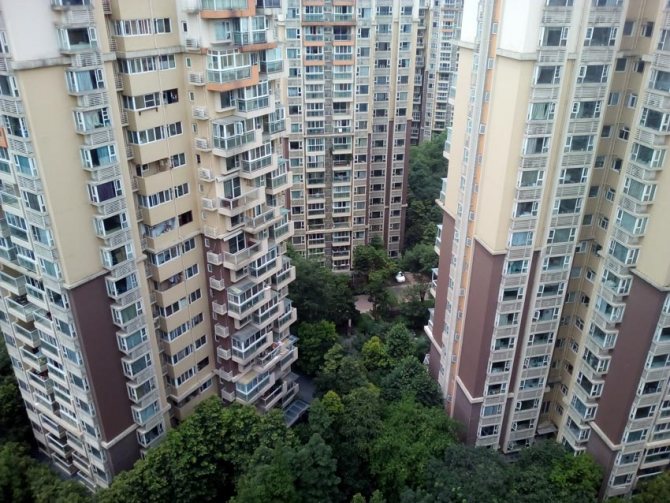
This is the view from my balcony. Before you is a standard housing community.
Living room of the apartment I rent. On the left is the entrance to different rooms. To the right is the kitchen.
A studio apartment NOT in the center of Chengdu costs about 1500-2000 yuan per month. A two-room apartment costs about 3,000 yuan (the amount is divided by two). If you have a limited budget, you can cooperate and find a two- or three-room apartment for 2000 yuan, but this will be difficult and the apartment is unlikely to be comfortable. In my case, I pay 3,000 for two people per month for a two-room apartment for two, excluding utility bills.
One important point. How does the payment process work? In China, it is customary to pay for 3 months at once , plus make a deposit equal to the cost of a one-month stay. The deposit is returned after the contract is terminated and the tenant moves out. If you don’t have any friends in the city where you plan to rent a home, you will need to contact a real estate office. They are literally on every corner. When contacting realtors, you will also need to immediately make a payment equal to the cost of living in an apartment for one month. This is their commission.
As a result, to rent a house we need:
- pay rent three months in advance
- make a deposit
- pay commission to realtors
For example, you rent an apartment for 2000 yuan per month. This means you need to deposit 10,000 yuan right away. This price includes 6,000 yuan (rent for three months), 2,000 refundable deposit and another 2,000 commission to realtors. Total 10,000 yuan.
Crime rate and corruption in the country
The mafia is the scourge of China. Organized crime in China is intertwined with official power. This increases the level of corruption, which is another national problem of the republic. From 2000 to 2010, 10 thousand officials were executed for bribes. China ranks 79th in terms of corruption (2015 data; CPI ranking maintained by Transparency International). Russia occupies 141st place in it.
In terms of the degree of rampant crime, the PRC is only 90th with coefficients of 31.51 (crime), 68.49 (security). The Russian Federation, for comparison, is on line 50 (47.36/52.64). Thus, a Russian is unlikely to be surprised by the crime situation in China.
How much do clothes cost in China?
It’s difficult for me to give you an answer to this question. If you still associate China with cheap consumer goods, put it out of your head. Yes, you can find a lot of cheap and low-quality items here. At the same time, in China there are a huge number of branded boutiques with really high prices. There is too much range in prices and it will be difficult for me to guide you. If you are directly interested in the topic of clothing, it may be better for you to search the Internet for blogs of shopaholics who live and work in China. I can’t be considered one of those)
Comparison of life indicators in China and Russia
As certain results, we can consider the main factors that give an idea of where it is better - in the Russian Federation or China.
| Position ($) | Beijing | Chengdu | RF |
| Mineral water (1.5 l) | 0.65 | 0.44 | 0.39 |
| Bread (800 g) | 1.5 | 0.8 | 0.25 |
| Cigarettes (20 pcs.) | 3.15 | 2.32 | 1.2 |
| Gasoline (1 l) | 1.43 | 1.04 | 0.65 |
| 1 m2 of housing | from 3000 | from 960 | from 400 |
| Worker's salary | 400 – 800 (average in China) | 400 – 800 | |
| Teacher's salary | up to 1200 | no higher than 800 | |
| In sales | 850 | 600 | |
Only people who have lived in this country can tell you what the main pros and cons of living in China are.
Life in China for Russians
Reviewing Chinese TV series and films, images of a happy and easy life in the Celestial Empire appear in the minds of Russians. Foreign citizens immigrating to this country also expect this from their new life. Having completed all the documents and arrived in China to live and work, a Russian person has to deal with many things unusual for his life.
Many of them are surprising, and some are shocking. Differences in mentality and the language barrier play an important role in this. Even knowing spoken Chinese and the basics of writing hieroglyphs, Russians are faced with the problem of understanding the Chinese. After all, in every region of the country there is a dialect, and pure language can only be heard from television screens. Russians are also amazed by the patriotic education of the local population, instilled in them from early childhood.
Over time, a Russian person gets used to it and the once shocking becomes quite commonplace, new acquaintances appear and life gets better.
Russian diaspora - how many Russians are there in China?
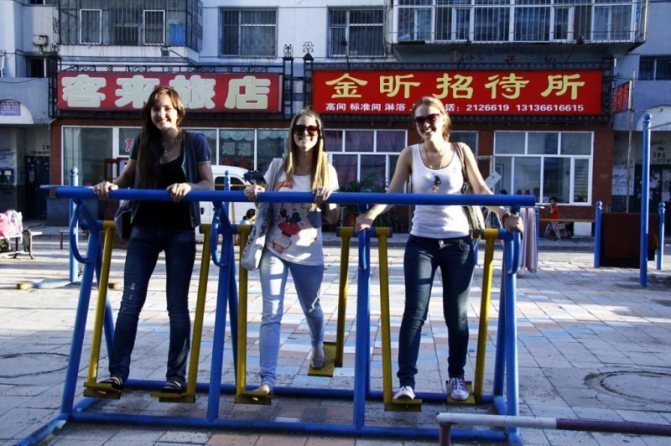
There is no ethnic organization that unites all Russian emigrants into one community in the Middle Kingdom. The Russian diaspora is represented by small unions formed on a territorial basis.
In China, there is only one place where Russians are the priority part of the population - Enhe - Russian national volost (autonomous region of Inner Mongolia), consisting of 8 villages. An Ethnographic Russian Museum has been opened in one of the villages (Shivei).
In the capital of China, Russian emigrants live and work in the Yabaolu Street area. In many phrasebooks this Beijing area is referred to as Russiatown.
The Russian community in Shanghai consists of businessmen and students studying at universities. The Russian Shanghai Club has been opened in the city and there are several Internet resources in Russian.
English teachers, models, artists from Russia make up the Russian community in Hangzhou province.
In the border cities of Heihe, Harbin and Hunchun, a high percentage of Russian emigrants are pensioners. They have opened several centers where they engage in amateur activities and help each other quickly adapt to the peculiarities of Chinese life.
A small number of immigrants from Russia live on Hainan Island, Hong Kong and Guangzhou.
How do Russians live in China?
The friendly Chinese people perceive Russian emigrants quite favorably. During the first acquaintance, local residents will definitely compliment you on your appearance and knowledge of Chinese, and express admiration for Russia and the president of the country. They will offer help and teach you many everyday things.
Despite the friendliness of the Chinese, there are a number of local subtleties regarding the employment of emigrants. When applying for a job, foreigners have to deal with inflated requirements: a master's degree, work experience of at least 5 years, knowledge of the language confirmed by a certificate. Even if all the requirements are met, employment in the Middle Kingdom poses difficulties.
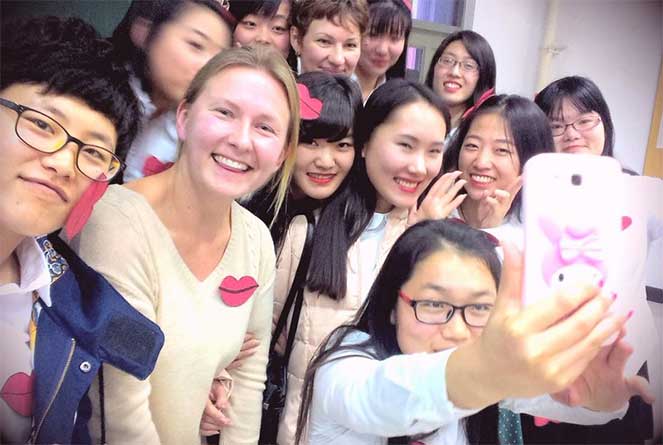
According to the Chinese labor code, preference in choosing a worker is given to local residents, even if he has a lower level of qualifications. Quite often, employees and company directors who are interested in highly qualified Russian employees prove the need for their company to have this particular employee to the authorized bodies.
It is quite difficult for Russians to get used to the absence of familiar news channels and social networks. In China, local analogues are used instead.
Food also poses particular difficulties. It takes a while to get used to new dishes that have a specific smell and a very pungent taste. In addition, the local population does not hesitate to use insects, snakes and animals that are unusual for Russian people during cooking. But, as they say, everything takes time.
China occupies a huge territory, so the nuances and cost of living depend on the specific region.
Cost of living in China for Russians
When deciding to emigrate to the Middle Kingdom, many Russians ask themselves: how much money will they need to live? The price of the issue depends on which city or province the Russian emigrant chose.
China is no different from other countries in the world: in large administrative centers the wage level is much higher than in the provinces, but prices here for food and housing are several times higher.
The bulk of Russians emigrate in order to earn money and have an interesting life, and only large cities are suitable for these purposes.
The salary of foreign mid-level employees in cities such as Beijing and Chengdu is 8,500 - 10,000 yuan. It is 1,000 - 1,500 yuan lower than that of the Chinese holding the same positions. This is not very much for a normal life in a large city; only the monthly rent of a 1-room apartment, not located in the center, costs 2000-3500 yuan. To save on rent, you can try to find a roommate and rent a 2-room apartment in half, then the payment amount will drop to 1500-2200 yuan per month. To this should be added utilities, on average 400 yuan per month.
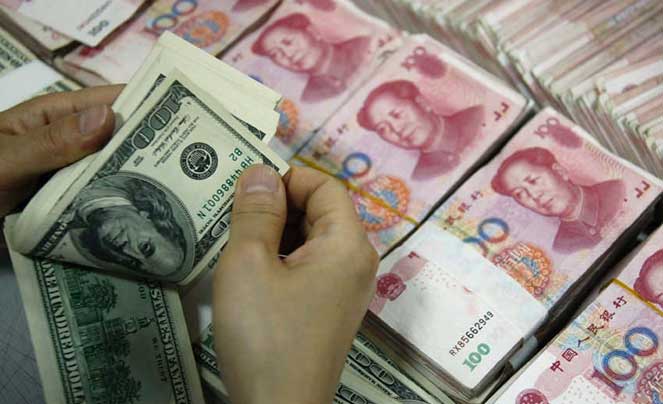
Don't forget about mobile communications. There are only three cellular companies in China: China Telecom, China Unicom, China Mobile. Their pricing policy is not much different; the minimum tariff package costs 30-45 yuan per month.
Buying products including meat, milk, vegetables, fruits (without delicacies and frills) for 2 people costs 2000-2200 yuan per month.
The only thing you can save on is transportation costs: if you have a short distance to your place of work, then purchasing a bicycle is very profitable, in other cases (bus, metro) it is better to purchase a transport card.
Medical care is also important - for emigrants all services are paid, so it is better to immediately take out an insurance policy.
As a result, for an average life, a family of 2 people will need at least 15,000 - 17,000 yuan per month.
Pros and cons of living in China
There is not a single place on the map of the globe where life has only positive sides. Everywhere there are at least a few negative aspects.
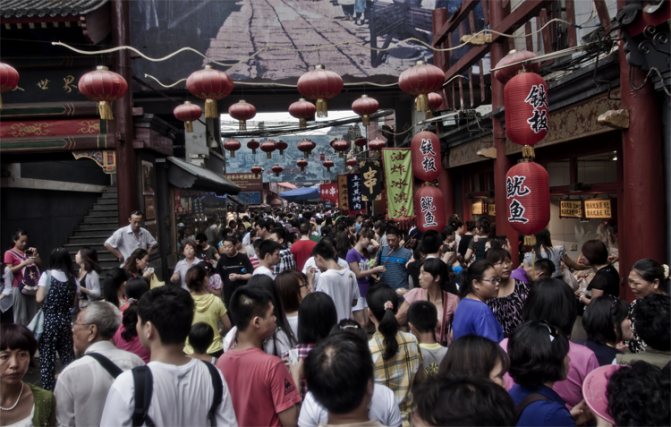
The positive aspects of life in the Middle Kingdom include:
- simplified program for starting a business;
- a huge number of jobs;
- There are enough offers for renting apartments on the real estate market. The cost varies and is suitable for expats with different incomes;
- a large assortment of goods, most of them produced in local factories and factories, and therefore have low prices;
- public transport operates at a high level, and travel is very cheap;
- Express delivery. There are no goods in the Celestial Empire that cannot be ordered to your home.
Negative aspects of life in the Middle Kingdom:
- ecological situation. Only residents of areas remote from metropolitan areas can breathe clean air. In industrial centers there is often smog, and residents are forced to use masks and respirators;
- failure to comply with traffic rules. Car drivers are quite noisy, do not allow pedestrians to pass, and quite often do not pay attention to the color of the traffic light;
- the rather slow work of bank employees leads to the formation of numerous queues, even if there are a large number of banking institutions;
- lack of centralized heating in multi-storey buildings;
- non-compliance by employers with the labor code: only 4 out of 10 employees can get vacation, and at many enterprises, even days off are a rarity;
- slow internet;
- specific and very spicy dishes. Many products contain large amounts of harmful chemical additives.
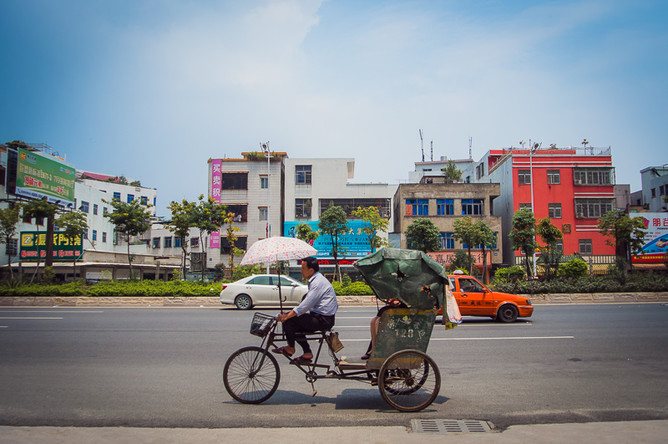
The biggest disadvantage for Russians is the unceremonious behavior of the Chinese on the street. For quite a long time, Russians get used to the fact that Chinese mothers can, without hesitation, sit their child down to go to the toilet in the middle of the street or even in a shopping area. Our compatriots are also surprised that the Chinese often spit a lot on the streets.
Although life in China is endowed with a sufficient number of disadvantages, they are brightened up by great opportunities, amazing impressions and numerous positive emotions.
Reviews from those who moved

Irina, 35 years old. In China, I work as a translator from English to Russian in a large company. My salary is 4 times higher than for a similar position in Moscow. I communicate with representatives of large businesses. Good linguists are worth their weight in gold here.
Maxim Mitrofanovich, 65 years old. Moved from Blagoveshchensk to neighboring Heihe. Many Chinese speak Russian. However, this was not even what struck me. There is a surprisingly respectful attitude towards the elderly here. They respond to any request, make concessions everywhere, and offer discounts in stores.
Sergey Ivanenko. I didn't like working in China at all. I had to live in a rented room. There are crowds of Chinese on the streets. The language is difficult, I never learned it, although I honestly tried for a year and a half. There is disgusting smog on the streets, they feed on all sorts of nonsense, like cockroaches. I went back to Voronezh and don’t regret it at all.
Thus, China through the eyes of Russians appears not only in a positive light. There is too much difference in culture, mentality, and the general way of life of the population of our countries. Those who decide to move to the republic should take this point into account and prepare for a difficult adaptation.
mobile connection
Calls and SMS are cheap here, of course it all depends on the tariff. We use China Mobile because most of our colleagues and acquaintances in Baoding are connected to this operator. Of the operators that catch my eye, I can also remember China Unicom - also one of the largest. We connected to a cheap tariff so that we could send messages - 0.1 yuan per SMS and make calls - 0.2 yuan per minute 8 yuan per month were charged . The connection cost is 50 yuan, everything is included . There is also a tariff for 13 yuan monthly subscription fee, the difference is in bonus Megabytes on the balance, so if you use the Internet, then it’s probably better to take this option; with my phone you don’t have to worry about the Internet. When you are in another region, the phone, like in Russia, goes into roaming, so it is more profitable to use SMS when traveling. We don’t make international calls, we call our family on Skype, and the main operators have online services for sending SMS.
When I first arrived in Beijing for the first time and was looking for the way to the office of the cop where I was then staying, I bought a card for as much as 100 yuan , while I had 30 left in my account, not so profitable, but rather even a scam. Oddly enough, in the Baoding branch of China Mobile we always came across at least one English-speaking employee, so it was much easier to deal with payments and tariffs.
In connection with the mobile topic, I would like to raise the question of how much equipment costs in China, the same iPhone 5. On the first day of sales, in the store closest to us there was a huge billboard that the fifth one can be purchased for 5400 yuan , now, naturally, prices have dropped. In Hong Kong, prices are lower due to the absence of duties, you can fly there without a visa, but there were also difficulties there; at the beginning of the sales, they were not sold to foreigners. On average, prices for mobile devices in mainland China are not much lower than in Russia; the only option to beat the trip is to immediately take a pack of devices for friends.









